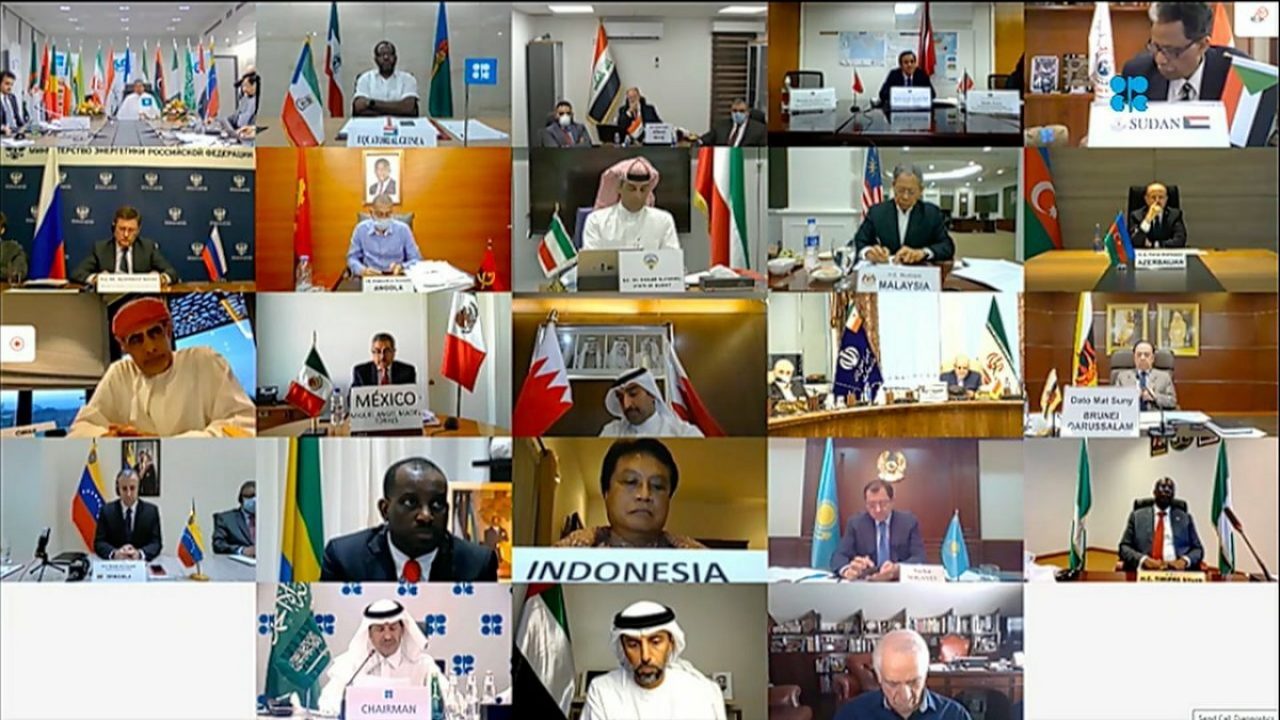Sabah Zanganeh told the Strategic Council on Foreign Relations that Saudi Arabia and Russia are the two main countries which play the leading role today in setting the markets and the price of oil, adding that these two countries can play an influential role in the availability of oil and its price in the markets given the high volume of the production and export of oil.
Zanganeh was referring to the twelfth meeting of the ministers of oil and energy of the member states and non-members of the Organization of Petroleum Exporting Countries which was held last Thursday through video-conference with the participation of 23 member countries.
Describing the current conditions of the oil and energy markets, he said “the present conditions of the oil market require a hike in the supply of oil on one hand, and a reduction in the purchase of oil by the Europe and the United States on the other hand.”
He added that the weather in Western countries did not get that much cold as it was expected and therefore there is less demand for fuel and oil in such countries particularly in Europe, therefore leading to a reduction in the price of oil.
According to Zanganeh such factors as political and security developments and the outbreak of Covid-19 would also influence the level of supply and demand and the price of oil in global markets.
He said the price of oil reached 50 dollars in the last several days which means profitability for the production of the US shale oil and America’s massive investment in the shale oil production.
Referring to the differences between the member states of the OPEC over the insistence of Saudi Arabia on reducing oil production, he said such a reduction in the production of oil is in addition to the previous agreements and would reach between 500 and 700 thousand barrels per day. Some OPEC member states such as Iraq and the UAE do not agree with reducing the production of oil.
Referring to the reasons behind the opposition of Iraq to a reduction in the oil production, he said Iraq is facing financial problems and cannot even afford paying the salary of civil servants.
“Earlier, Iraq had to decrease oil exports which resulted in a reduction in the oil revenues of the government and caused financial and social crises; therefore, as the result of such an oil policy, we witnessed how the federal government and the Kurdistan region faced severe financial difficulties,” he said, adding that Iraq is opposing a reduction in the oil production and is therefore seeking to return to tis previous export levels in order to prevent more financial losses.
Pointing to the reasons of the UAE to increase the production and export of oil, Zanganeh said the UAE is pursuing ambitious economic and security plans in several other countries and is therefore opposed to a reduction in the production and exportation of oil as it will decrease its revenues.
He cited some energy analysts as saying that the UAE may separate itself gradually from the OPEN and act independently in which case it will cause numerous repercussions.
Zanganeh also referred to the reasons behind Riyadh insistence on a reduction in the production of oil, saying that Saudi Arabia is seeking to reduce oil production under pressure by Donald Trump in order to make it possible for US companies to begin producing shale oil in a cost-effective manner.
Asked about the Iranian approach in the recent OPEC Plus meeting to reduction or increase in the production of oil, he said the Islamic Republic of Iran is opposed to the reduction in the production of oil in spite of the fact that it has faced problems in the export of its oil as the result of unilateral US sanctions.
On the future of the energy market, he said the production of the Covid-19 vaccine could bring conditions and trade activities back to normal in many countries and this would result in more demand for oil and rising prices.
He said the economy of China can register more than four percent growth which would make China to import more oil.
Zanganeh said the majority of the OPEC member states agreed in the recent meeting on an increase in the production of oil in order to maintain their own shares in the global oil markets to enable them address the needs of the market in the future.










0 Comments